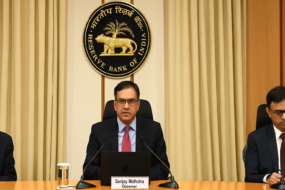Zoho Corporation’s co-founder and chief scientist, Sridhar Vembu, has raised the alarm over what he sees as an imminent collapse of the global financial structure. In a detailed post on X (formerly Twitter), Vembu declared that the current model of international trade, which relies heavily on U.S. debt and the widespread circulation of the dollar, has reached a critical tipping point.
“To understand today’s crisis, we must revisit the last 50 years of global trade mechanics,” Vembu explained. He described how the U.S. continuously imports more than it exports, flooding the world with dollars that are further leveraged by global financial institutions—creating what he calls a “monetary alchemy.”
This system, according to Vembu, hinges on the U.S. perpetually increasing its debt to keep global trade and investment afloat, leading to the weakening of its own industrial base. He pointed to the 1985 Plaza Accord, where countries like Japan and Germany were asked to curb exports to rebalance trade—a situation now mirrored in U.S.-China tensions.
Calling the system “fundamentally flawed from the start,” Vembu said, “It’s now at a breaking point.”
A Return to Gold and Silver?
As a solution, Vembu proposes a return to hard assets like gold and silver as international settlement currencies. “Paying for imports in gold imposes natural limits and curbs unsustainable deficits,” he said. While acknowledging the transition would be painful, he argued that the collapse of the current “paper claims on top of claims” structure is inevitable.
When challenged by other tech leaders who questioned the practicality of reintroducing gold or silver, Vembu responded, “Then what’s the alternative? Bitcoin? Commodity-backed crypto? We need a system not tied to the U.S. running massive deficits.”
Rising Recession Fears Amid Trade War
Vembu’s warning coincides with rising global economic uncertainty. Recently, the U.S. imposed sweeping tariffs on imports from several nations, sparking fears of a global recession. The move triggered sharp market sell-offs—Dow Jones plunged 7.5%, the S&P 500 dropped 9.1%, and Nasdaq slid 10%. With China retaliating through a 34% tariff on all U.S. goods, economists at JPMorgan now place recession odds at 60%.





